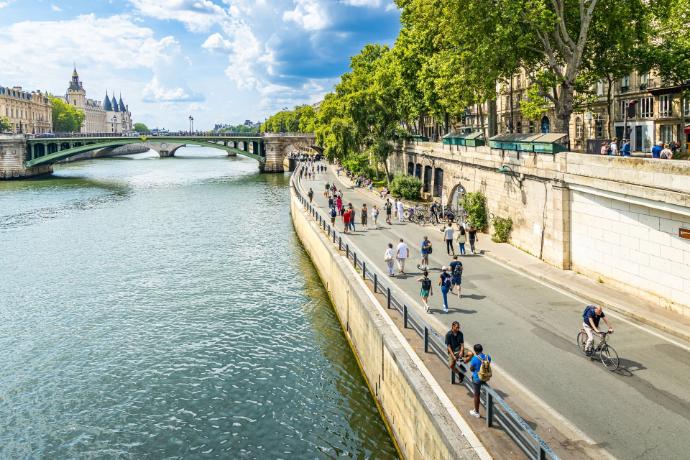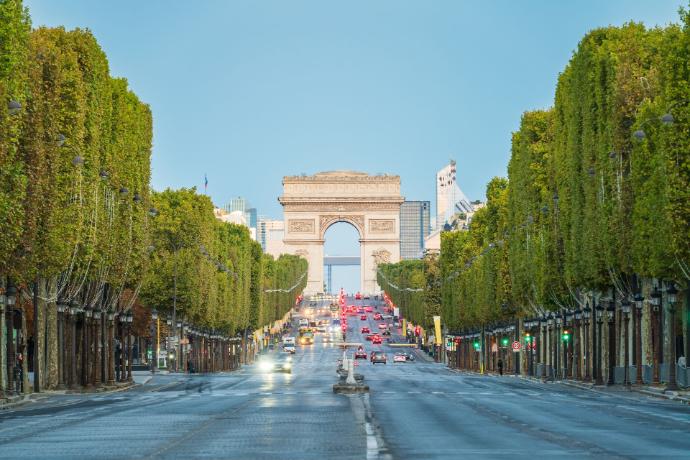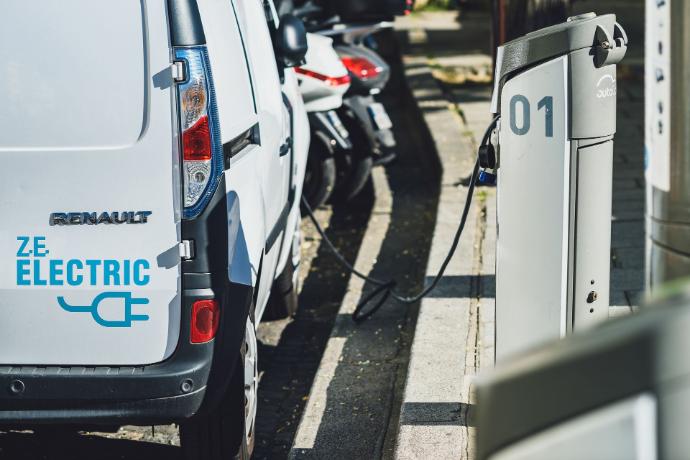The Greater Paris Metropolitan Area (MGP) comprises 130 cities and municipalities (the smallest administrative divisions in France) in the center of the Île de France Region (IDF). It was created on January 1st, 2016, in accordance with the law for the modernisation of territorial public action and affirmation of the Metropolis, as well as the law for the new territorial organisation of the Republic. Its creation aimed at fostering solidarity between highly unequal territories and enhancing the international standing of the Metropolis to elevate it to the level of London or Shanghai (Lautier 2015).
In terms of area, the MGP (red contoured area on the map above) covers about 814 km² out of the IDF’s 12,012 km². It comprises the city of Paris, cities in the surrounding departements (larger administrative units) that form the inner ring of Paris, as well as a few municipalities from the outer ring of Paris.
The 130 municipalities merged into the MGP, which is an intermediate administrative division called EPT (Public Territorial Establishment), to share their competencies and jointly organise the transportation, urban planning, and public services within their territory.

Why did they join STEER-NWE?
The Metropolis has taken up the issue of car sharing and wishes to promote its development within the metropolitan area. The development and massification of car-sharing services and their expansion across the metropolitan area require a better understanding of the challenges and deployment strategies of current and future operators, as well as knowledge of users’ needs and barriers.
The Metropolis's contribution to the STEER-NWE project aligns with its ongoing efforts to expand sustainable mobility services across the metropolitan area. The Metropolis aims to create the conditions for the development of electric car sharing by facilitating dialogue among stakeholders to build a sustainable economic model, while ensuring the services become accessible to all residents across the metropolitan area.
The STEER-NWE project will thus be an opportunity to develop two experiments to:
- Design a partnership approach,
- Mobilise the experience of partners on similar issues,
- Promote know-how and disseminate the results and successes observed.
What will the French pilot discover?
Pilot 1 :
Work with private operators, road managers, IDFM, and AGEMOB to develop standard contract terms between car-sharing operators, road managers, and, where applicable, EV charging infrastructure operators.
The conclusions of the project, set out in a standard agreement template or charter, will enable all stakeholders to :
- Consolidate their financial prospects and thus ensure sufficient visibility to secure the economic models associated with electric car sharing.
- Provide visibility at the metropolitan level on the setting and collection of fees,
- Establish arguments in favor of car sharing and provide a common knowledge base for elected officials.
The metropolitan area's project includes the possibility of offering one or more study trips for around 20 people (elected officials or local decision-makers) to meet their counterparts in other European cities.
Pilot 2 :
Based on a call for private initiatives, the aim is to identify a car-sharing offer at two or three sites in the metropolitan area, deployed at the expense of private operators, and to give around 100 metropolitan residents free access to the service for a limited period.
At the end of the test phase, the panel of beneficiaries will be monitored for a year to understand the drivers of loyalty on the one hand and the causes of disengagement on the other.
What does e-carsharing mean to MGP?
Electric vehicle sharing plays a key role in building a more sustainable and livable city. By facilitating access to shared electric cars, the Greater Paris Metropolitan Area is encouraging the shift from individual ownership to more environmentally friendly mobility solutions. This transition directly supports the ambitions of the PCAEM (Metropolitan Climate, Air, and Energy Plan) and helps the Greater Paris Metropolitan Area achieve its climate and air quality objectives.
In addition to its environmental benefits, electric car sharing plays a major role in promoting electric mobility by offering everyone the opportunity to experience electric driving without having to purchase a vehicle. This facilitates and democratises the transition to cleaner mobility.


